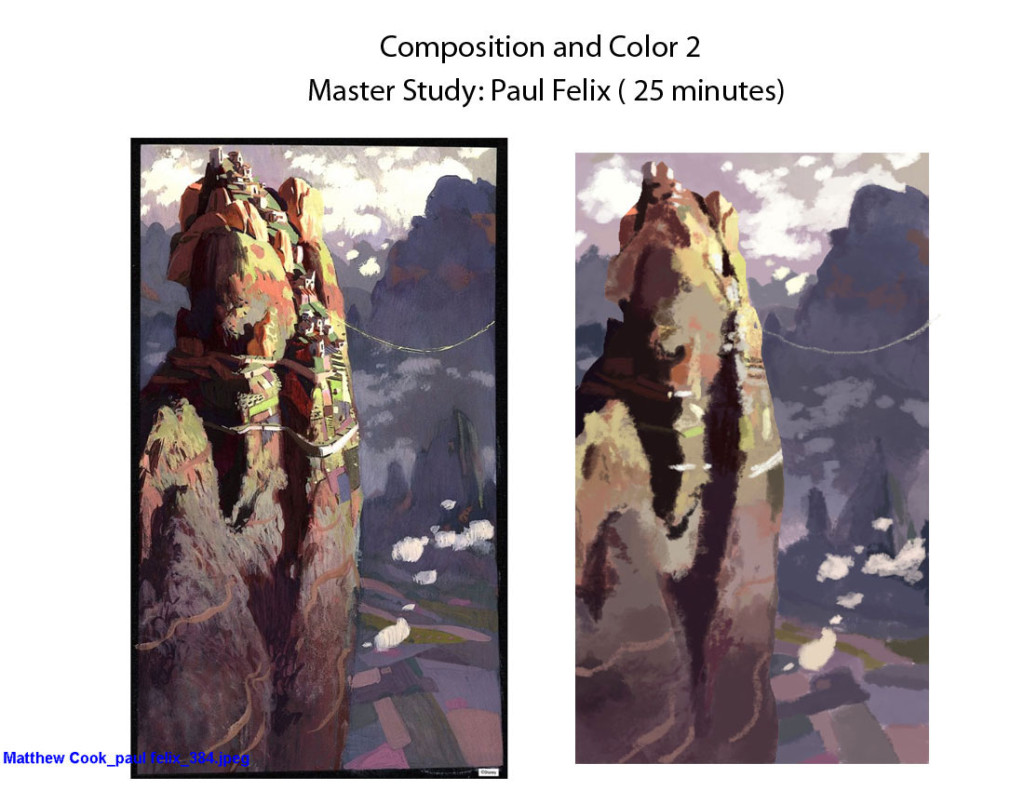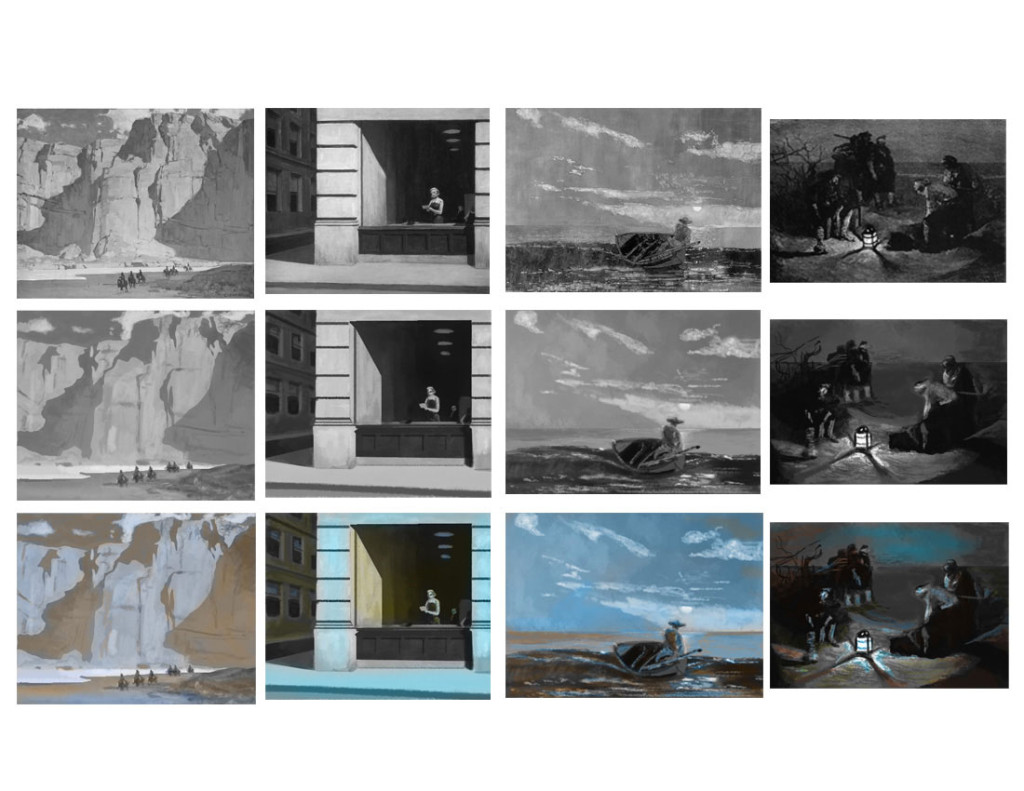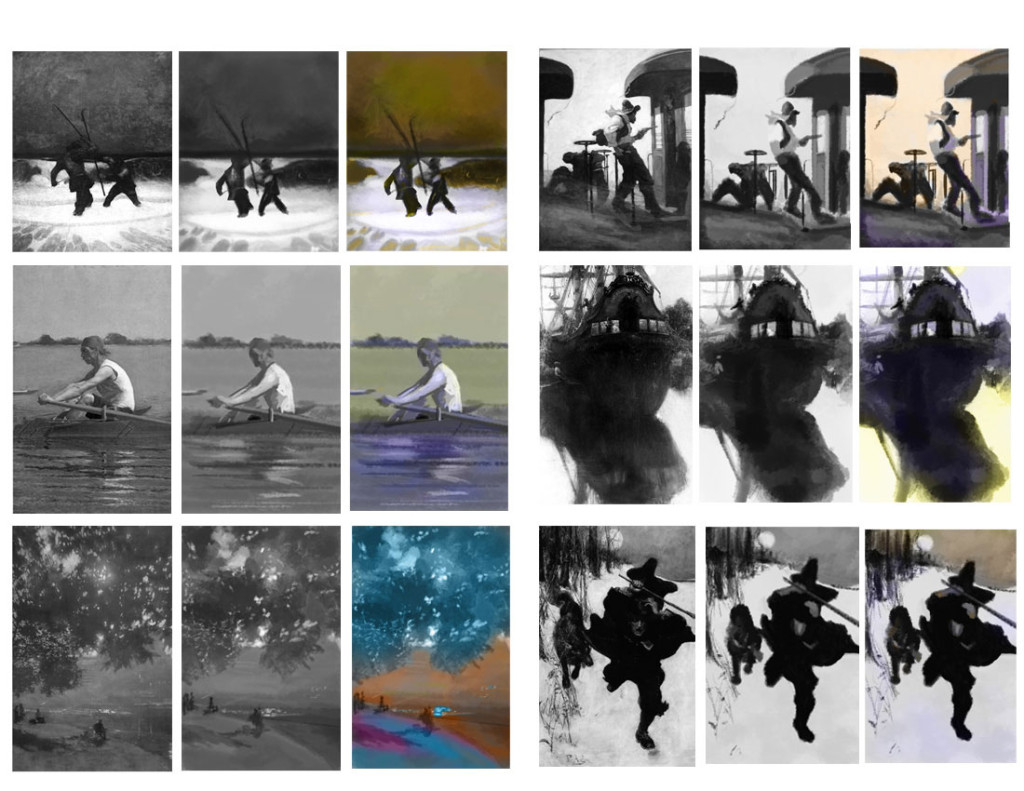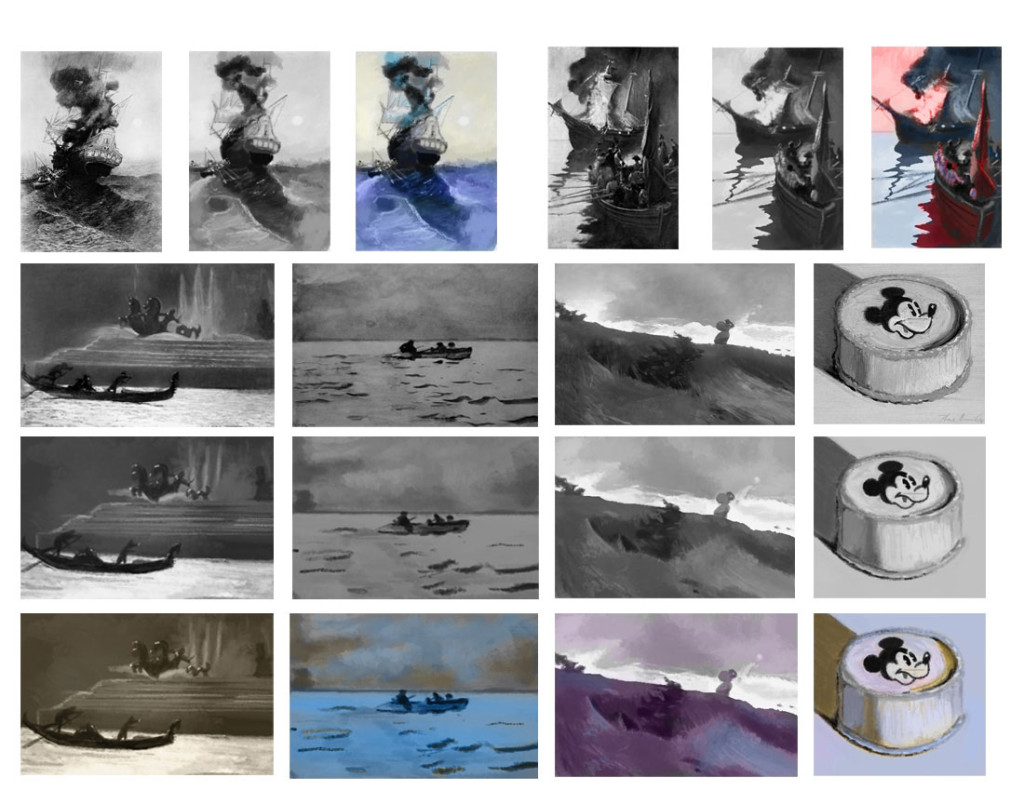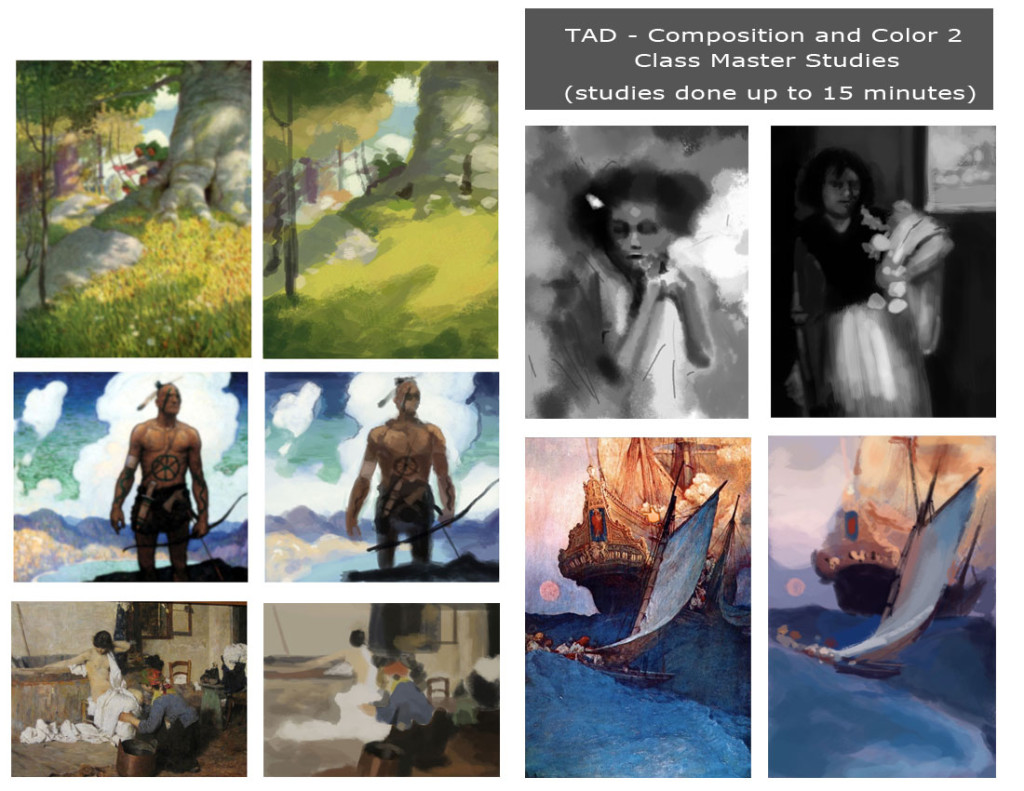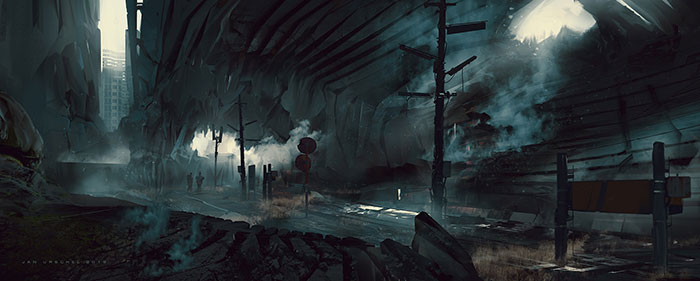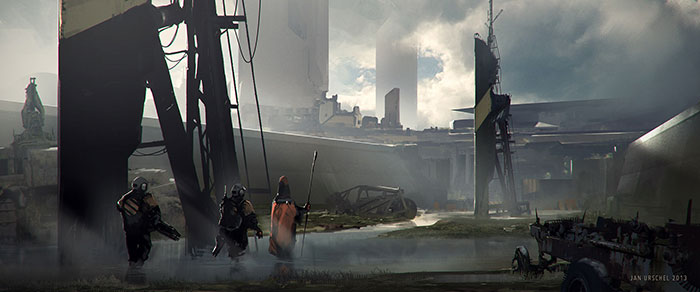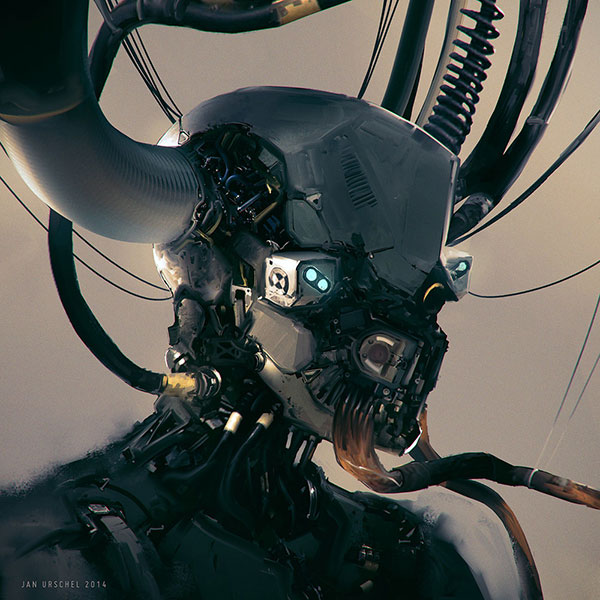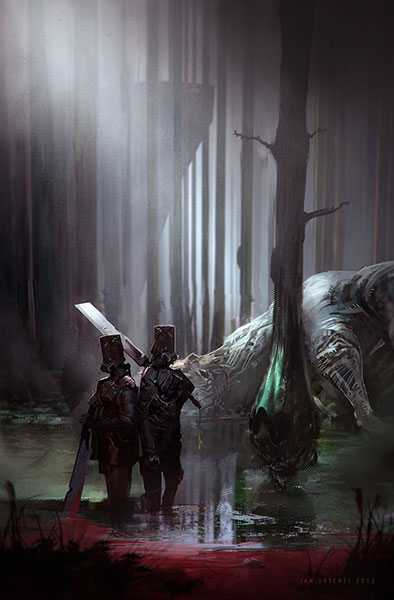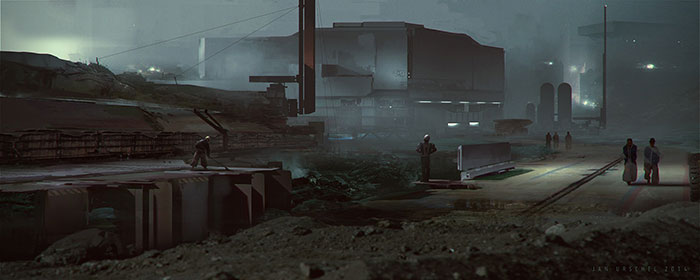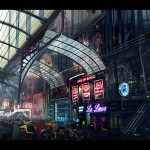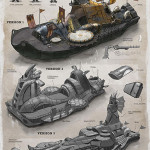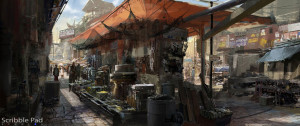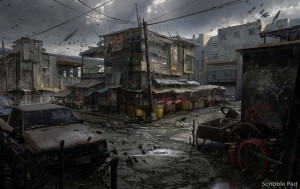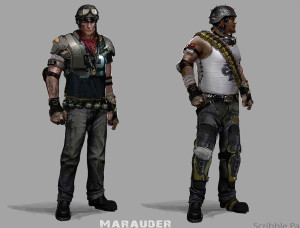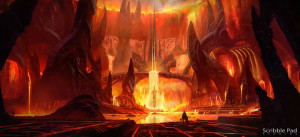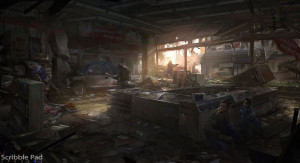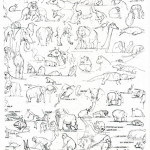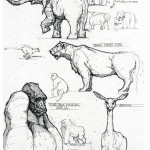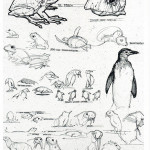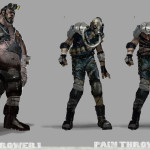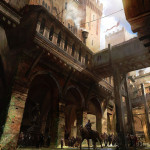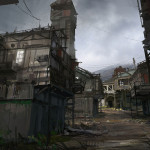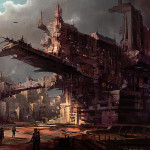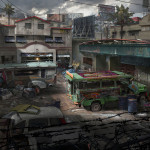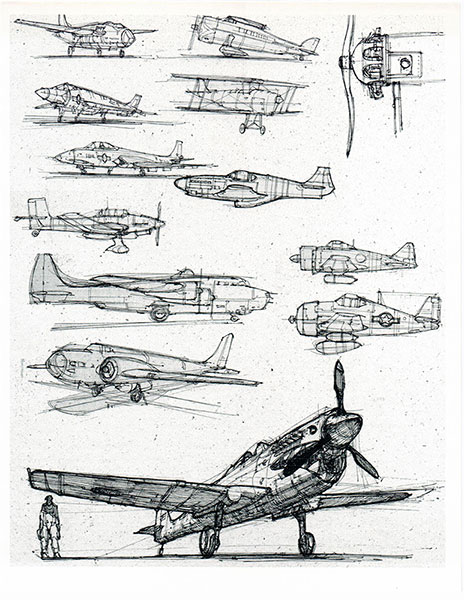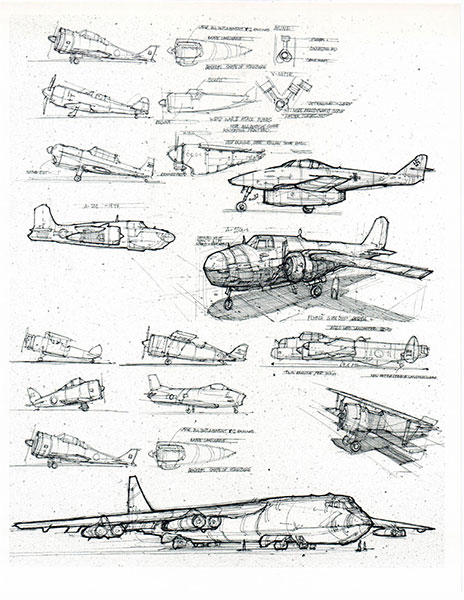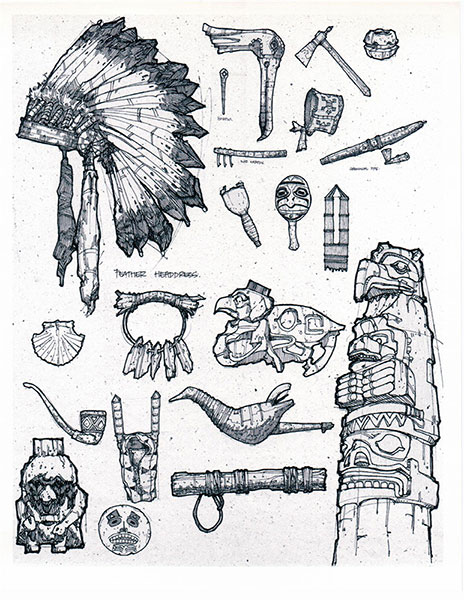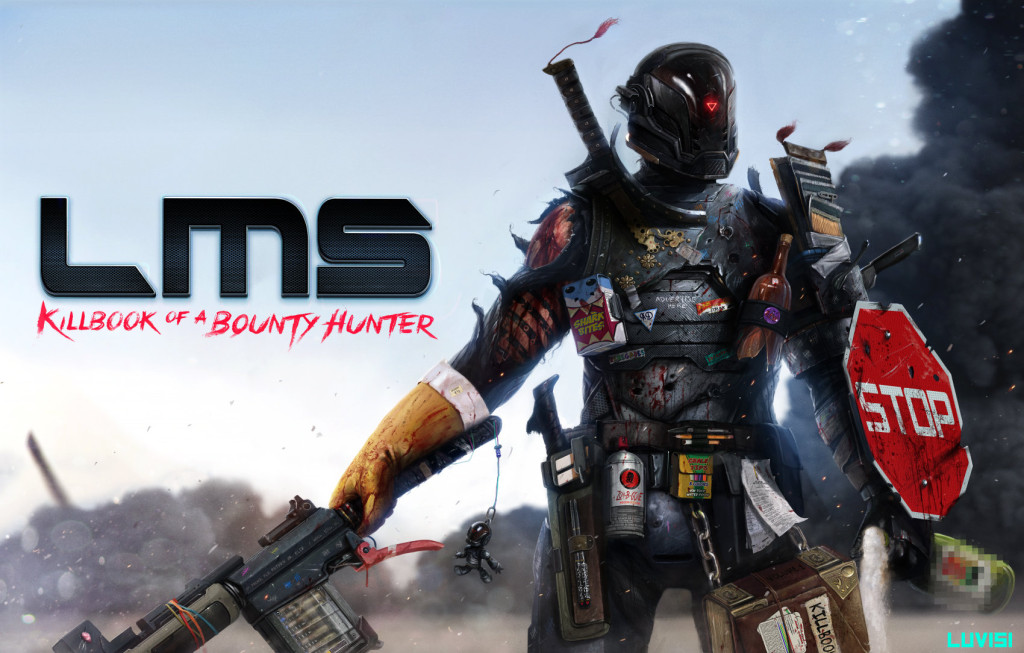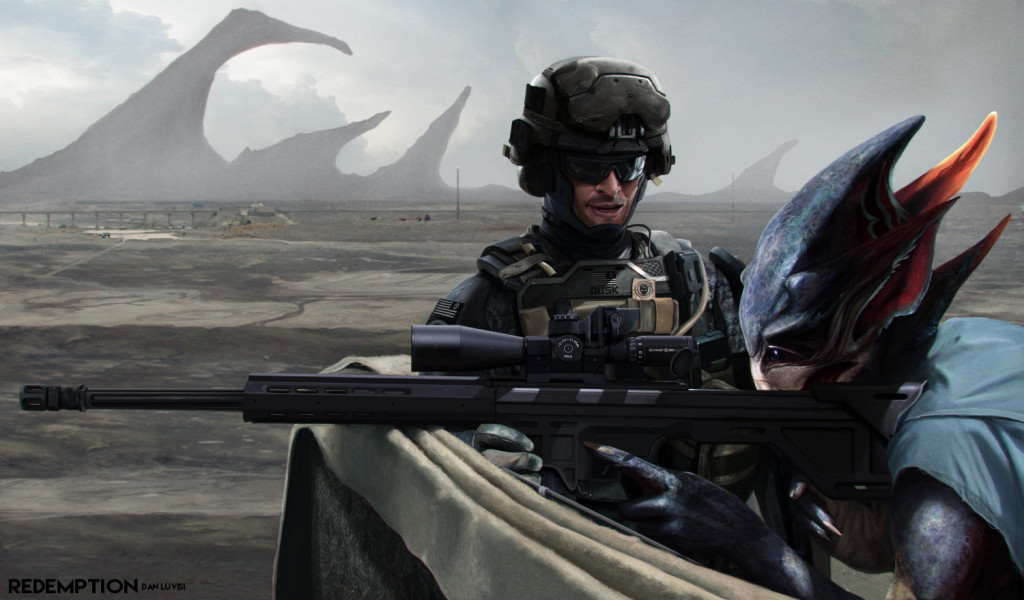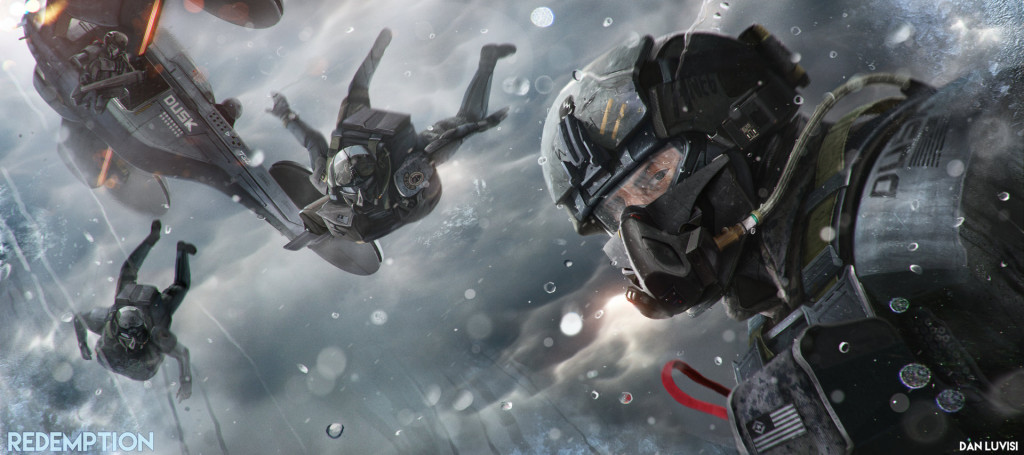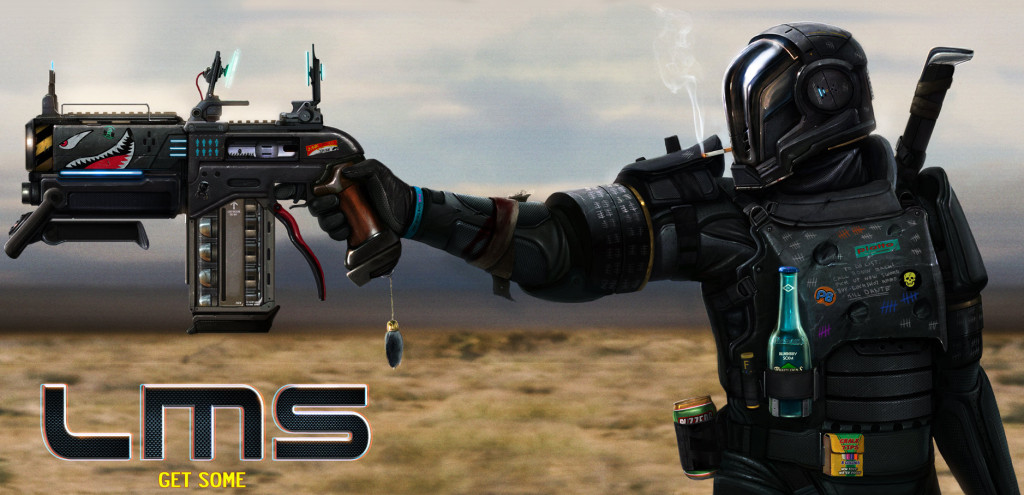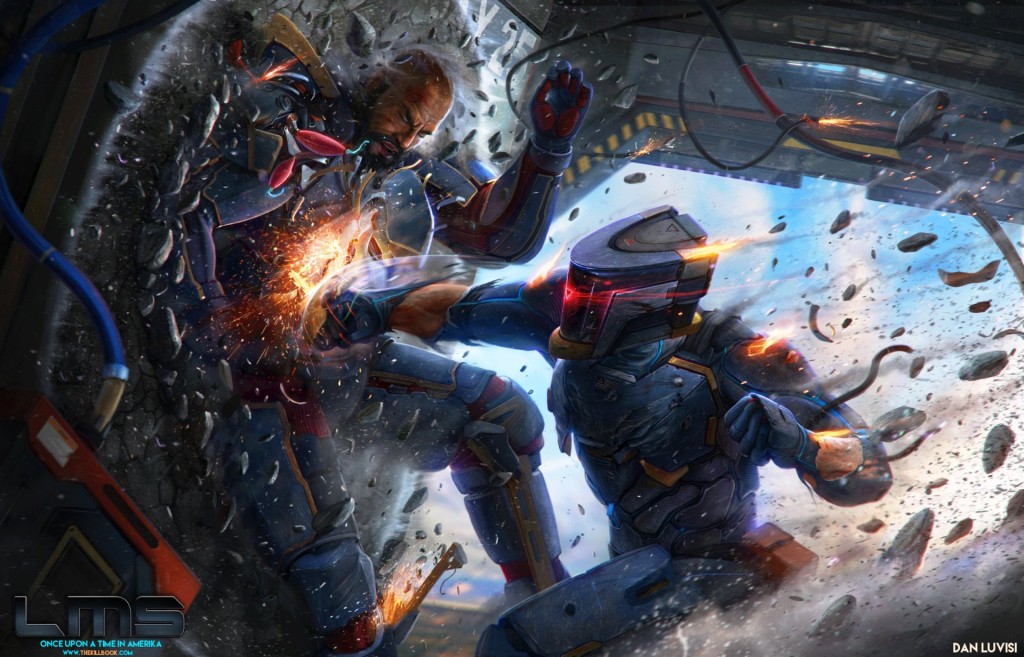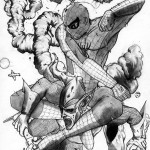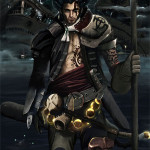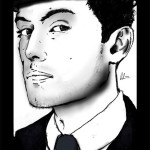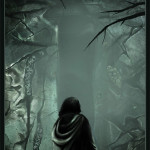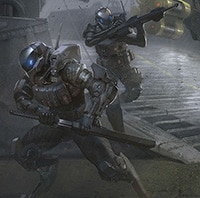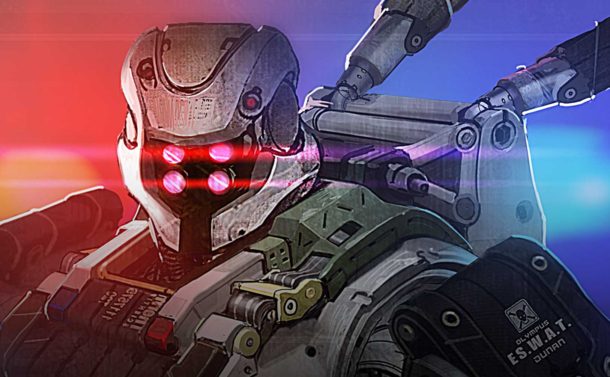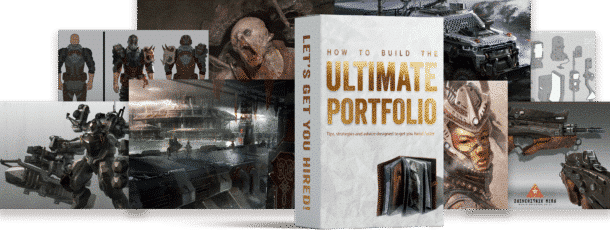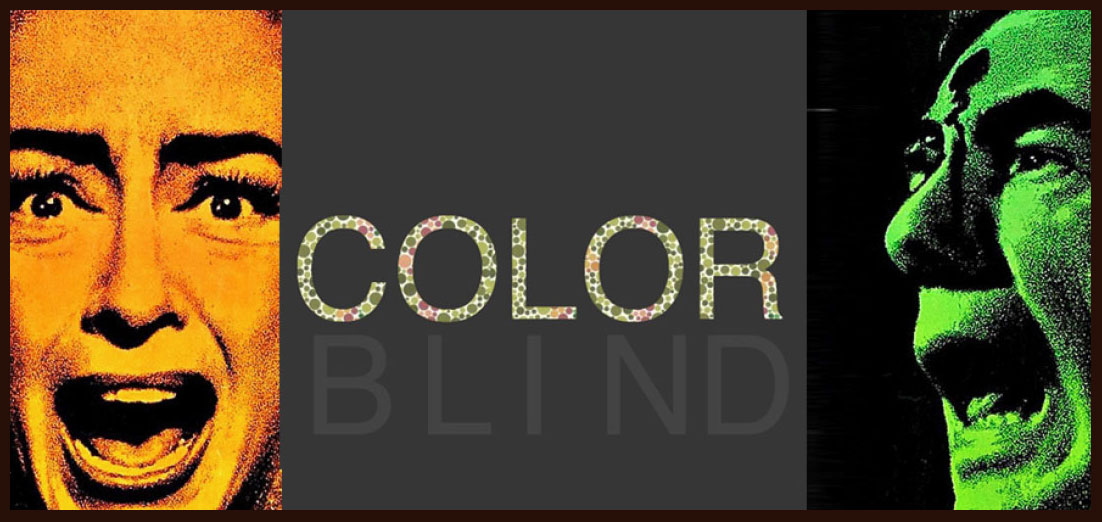
by Eliott Lilly | Jun 23, 2015 | FAQ, Questions

Concept artist James Paick and Hector Ruiz share an insight into what is like to have color blindness in art and how to work around it.
Question submitted by Gary
I’M 18 YEARS OLD AND I LOVE DESIGN, DRAWING, ART, STUFF LIKE THAT…BUT I’M COLORBLIND. SOMETIMES I MISTAKE A YELLOW COLOR WITH A LIGHT GREEN COLOR, RED WITH BROWN, ETC. I REALLY LOVED DRAWING WHEN I WAS YOUNGER, BUT I KIND OF LOST MY PASSION WHEN I FOUND OUT ABOUT MY CONDITION. MY QUESTION IS, CAN I BE A CONCEPT ARTIST IF I’M COLORBLIND?
Hey Gary, it took me some time to ask around and get an answer for your question. To my surprise colorblindness is more common in the industry than you think. While I am not color blind myself, I now know of several artists who are and who have first-hand experience dealing with this issue. So, instead of listening to me… listen to them.
I sent your question to Hector Ruiz who assists me with the Big Bad World of Concept Art website and who, despite being partially color blind himself, is still a professional illustrator . Here’s what he said:
Hey Gary,
First of all, never lose your passion because of a disability. Do not get me wrong, living with a disability certainly comes with some challenges. For example, if you are unable to find work because of your disability, managing your finances can be incredibly tough. That being said, if you are struggling to make ends meet, then you might want to do some research into disability insurance.
Essentially, disability insurance is a type of insurance that can provide income in the event that you are unable to work due to a disability. The actual disability insurance cost can vary depending on your disability insurance provider, and therefore doing plenty of research is strongly recommended so that you can find the best disability insurance policy for your specific needs.
However, did you know that some of the greatest figures in history overcame their disabilities in order to pursue their true passion? Check out people like Thomas Edison or Albert Einstein. Color blindness is only small bump on the road, considering there are artists like John Bramblitt who successfully make a living selling paintings while not having any sight. Crazy, right?
The way I see it, if you have a passion for something, you will find a way to do it. I found out at an early age that I was color blind. Kids in my class would make fun of me because I colored things the wrong way. I didn’t care because I could still draw better than anyone in class. In high school I came up with excuses to how I chose colors, and this seemed to work fine, even throughout college.
When game/film art became my focus of learning, I realized that I could not come up with a fine arts approach to “cheat” the system. I came up with different techniques. I asked my wife for help, used Photoshop’s eye dropper tool, worked with Photoshop filters, and even made color swatches out of master paintings or Google pictures. By the way, the last things I mentioned are a great way to learn about working with colors. Take a master painting. Study it, color it, make swatches out of it. It’s not as easy at times and sometimes it takes a little longer in completing things but you get used to it. After a while, you start to develop a system to make things work.
If color still gives you trouble, then you could always explore corrective eye surgery with somewhere like SharpeVision. Modern eye surgery can fix all sorts of eye issues these days. Alternatively, you now have an opportunity to work on things with value (black/white). There are many artists who do well creating masterful pieces with value. If you’re really good, a company can hire someone else who will take care of the color. I’m almost positive it would work similarly with college. A lot of people can draw. The trick is to know how well you can design something. If school denies you access, you are in an age of technology where almost everything can be found online. I had great art teachers who were self taught. Check out our resource’s page where you can find a few things to get you started, and good luck.
Here, are a few color exercises that I had to do while in school. I hated them because my teacher would make me do them multiples times until I could understand color better.
I also sent your question to James Paick, a professional concept artist and instructor who is also partially color blind. He says:
You can definitely design, and learn to become a great concept artist, even without the use of color.
One question is: Are you fully colorblind, or only with certain color spectrum?
The beautiful part of the world of design is design translates in Black & White OR in color. Some of the best designers in the industry are people who draw & paint in black and white.
One of my top instructors from Art Center was actually full color blind I believe, as well as my classmate Tyler West: http://www.weststudio.com/
I would highly recommend checking out artists such as Marcos Mateu-Mestre & Robh Ruppel
Both their books – Framed Ink & Graphic LA are amazing, with either minimal or the absence of color!
And there you have it. Straight from the PROs.
IF ANYONE WANTS TO LEARN MORE ABOUT COLORBLINDNESS, CHECK OUT THIS PRESENTATION THAT HECTOR PUT TOGETHER
ColorblindPresentation
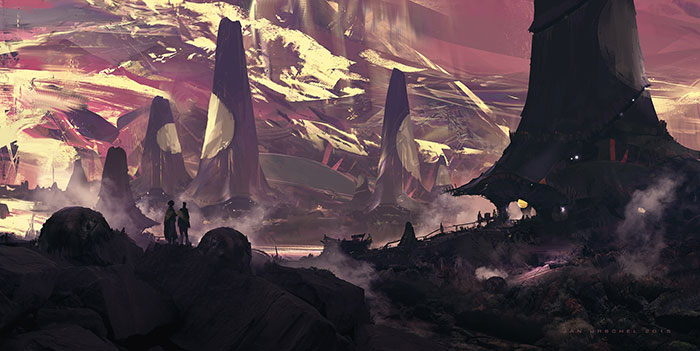
by Eliott Lilly | Jun 22, 2015 | Interviews
JAN URSCHEL IS A FREELANCE CONCEPT DESIGNER AND ILLUSTRATOR WORKING IN THE ENTERTAINMENT INDUSTRY, DESIGNING FOR FEATURE FILMS AND VIDEO GAMES.
Website: www.hendrix-design.com
Jan Urschel’s current portfolio examples
In this interview, we asked Jan Urschel specific questions about what it’s like to be a concept artist in the entertainment industry, dispel a few common misconceptions that aspiring artists tend to have about the field, discuss his educational background, how he markets himself in the industry and more. Here’s what he had to say:
HOW OLD WERE YOU WHEN YOU DECIDED TO COMMIT TO BEING AN ARTIST?
When I decided to seriously get into concept design, I was 28 years old. I was inspired by great artists like Moebius and Syd Mead and being generally unsatisfied with my career so far.
WHAT DO YOU LIKE MOST ABOUT YOUR JOB? WHAT DO YOU FEEL ARE THE BIGGEST CHALLENGES?
As a freelance artist I enjoy the freedom it gives in planning my day, which is also the biggest obstacle I face: time management.
ARE THERE ANY MISCONCEPTIONS YOU THINK STUDENTS TEND TO HAVE ABOUT CONCEPT ART AND ILLUSTRATION, THE JOB AND/ OR THE CAREER THAT YOU WISH TO SET STRAIGHT?
A lot of students seem to think concept art is all about the pretty stuff they see on social media, which they tend to imitate without going through learning fundamentals. While a traditional education is not necessary, these days it is still important to learn the basics.
I [also] feel that for some strange reason (concept) artists are seen as morally superior beings by students/fans/even peers, which leads to disappointments if the artists don’t behave that way all the time. Artists are normal people like anybody else, some are nice, some are not.
CAN YOU SHARE A PERSONAL STORY, ABOUT A HARD LESSON THAT YOU LEARNED THAT COULD HAVE BEEN AVOIDED, HAD YOU BEEN BETTER INFORMED?
In the beginning, I was [a] very inexperienced freelance artist and blamed the client for everything. Looking back, this was a pretty bad thing, but I wouldn’t want to avoid these kind of mishaps. They all help make you better at what you do, even if in the short run you lose clients/money.
Jan Urschel’s student work examples from his time attending FZD
HOW VALUABLE IS IT GETTING AN EDUCATION FROM A UNIVERSITY OR COLLEGE BE FOR ASPIRING ARTISTS WHO WANT TO BREAK INTO THE ENTERTAINMENT INDUSTRY?
These days online materials are abundant and I feel a traditional education at a school is not necessary anymore. I urge students to look far beyond learning how to draw and to design. Nothing has been more helpful to me then spending five years getting my masters degree in Japanese studies. Not that you have to go to such extremes, but learning languages, cultural studies, living/studying abroad is absolutely essential I think.
WERE YOU DISCIPLINED AND/OR FOCUSED IN SCHOOL?
At the time I studied at FZD I was old enough (and invested enough of my own money) to feel the urgency and muster up the discipline to get the most out of the course.
DID YOU HAVE ANY OUTSIDE HELP PUSHING YOU ALONG WITH YOUR TRAINING? FROM A MENTOR, PASSIONATE TEACHER? FAMILY? FELLOW STUDENT?
Some financial support, but my parents are not artists, so they did not quite understand what I was doing.
WHAT ARE YOUR LISTS OF DO’S AND DON’TS TO BUILDING A STRONG PORTFOLIO?
Short, to the point. Only your strongest work and of course work that is somewhat tailored the client in question.
IF YOU COULD GO BACK AND RE-EVALUATE YOUR OWN GRADUATING PORTFOLIO, HOW WOULD YOU DO? WHAT DO YOU THINK MADE YOUR PORTFOLIO STAND OUT? WHAT COULD HAVE BEEN DONE BETTER?
I focused maybe a bit too early on environments which is what I always wanted to do, so my character work suffered a lot from lack of knowledge in anatomy, etc.
HOW DID YOU HUNT DOWN YOUR FIRST JOBS IN THE INDUSTRY?
I sent out hundreds of job applications to companies all around the world which resulted in 3 interviews of which one worked out in the end.
HOW DID YOU MARKET YOURSELF COMING OUT OF COLLEGE/ FIRST STARTING OUT? WHAT DIFFICULTIES DID YOU HAVE TO OVERCOME?
I was using the most available social networking channels, which at the time were Facebook, Twitter, Blogs, Tumblr, Behance, my own website, and Deviantart. The most difficult was of course confidence to show my artwork to everyone and taking criticism.
WHERE DO YOU CURRENTLY MARKET YOURSELF? WHAT GIVES YOU THE MOST RETURN ON YOUR INVESTMENT?
Facebook, Twitter, Instagram, Bechance, LinkedIn, Artstation, Tumblr, and my own website. By far the best tool is word of mouth. Connecting with fellow artists and colleagues and getting recommended has hands down resulted in the best jobs I got.
DO YOU THINK THE INDUSTRY IS VEERING TOWARDS A MORE CONTRACT AND OUTSOURCING MODEL FOR ARTISTS?
I think it’s going to stay the way it is to be honest. There is always gonna be need for junior artists and experienced freelancers.
WHAT IS YOUR MUST-HAVE LIST OF BOOKS, APPS, TRAINING MATERIALS, ETC. FOR CONCEPT ARTISTS AND ILLUSTRATORS?
Besides some fundamental books like the ones from Scott Robertson and James Gurney, I recommend avoiding art books from movies/games and rather focus in other disciplines: novels, history books, magazines/books about architecture, fashion, design etc.
DO YOU HAVE ANY PODCASTS OR WEBSITES YOU VISIT REGULARLY FOR INSPIRATION OR REFERENCE
I’m inspired by stories and ideas outside of the entertainment industry. I listen to Jazz a lot so the “Jazz and Beyond” podcast is fantastic. Besides that I listen to Monocle Weekly for current affairs, design and generally things I would otherwise never hear about.
This concludes our interview with Jan Urschel. For further reading, Check out Jan Urschel’s Words Of Wisdom to aspiring artists. (coming soon)
All images used with permission by the artist. ©Jan urschel
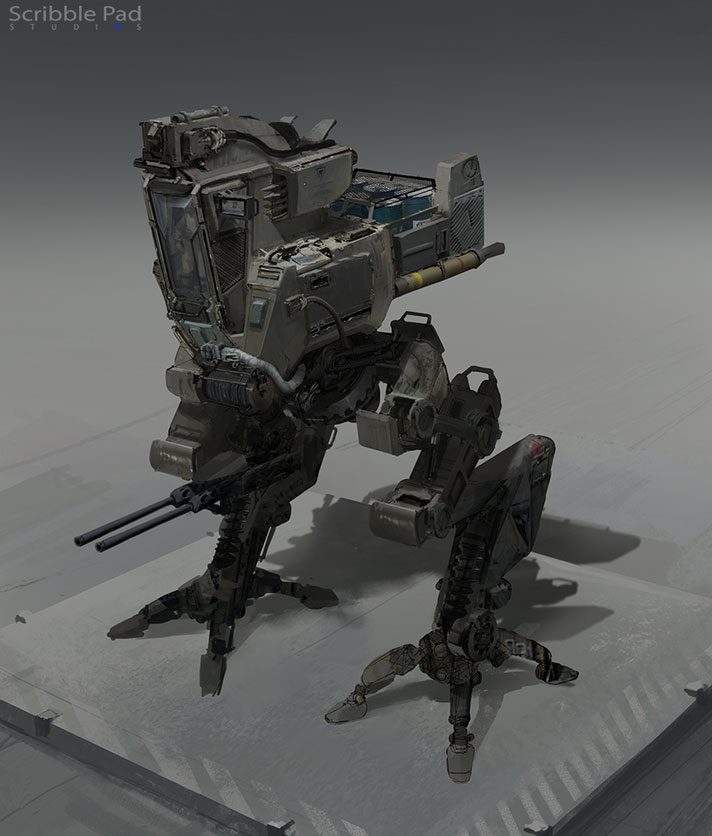
by Eliott Lilly | Jun 17, 2015 | Interviews
JAMES PAICK IS THE FOUNDER AND CREATIVE DIRECTOR AT SCRIBBLE PAD STUDIOS WITH OVER 15 YEARS OF DESIGN EXPERIENCE.
Scribble Pad Studios under the direction of James Paick has been responsible for creating some of the most memorable designs and moments in entertainment design. James has developed many projects within the gaming, film, theme park, illustration, entertainment space and advertising fields.
Websites:
www.ScribblePadStudios.com
www.JamesPaickArt.com
www.BrainstormSchool.com – This is a school specifically focused on design & job placement for students in the video game industry.
James Paick/ Scribble Pad Studios’ current portfolio examples
In this first part of the interview, we asked James Paick specific questions about what it’s like to be a concept artist in the entertainment industry, dispel a few common misconceptions that aspiring artists tend to have about the field, and discuss his educational background. Here’s what he had to say:
AT WHAT AGE DID YOU COMMIT TO BECOMING A PROFESSIONAL ARTIST? WHAT WERE YOUR MOTIVATIONS/ INSPIRATIONS?
I think I’ve always been into art as a child. There was no real outlet creatively at that time for art to be respected in the way it is today. Once concept art was exposed to me while at Art Center, there was no turning back. It was balls to the walls.
WHAT DO YOU LIKE MOST ABOUT YOUR JOB? WHAT DO YOU FEEL ARE THE BIGGEST CHALLENGES?
Each project has its own challenges, but the one thing that makes it absolutely fun is you’re allowed to do things your way. And that’s what really makes project better; when you can bring in your soul and your ideas to life.
ARE THERE ANY MISCONCEPTIONS YOU THINK STUDENTS TEND TO HAVE ABOUT CONCEPT ART AND ILLUSTRATION, THE JOB AND/ OR THE CAREER THAT YOU WISH TO SET STRAIGHT?
Yes!!! This is a field that is fun, exciting, & you get to ‘be a kid’ for the rest of your life. However, this is also a field that is very competitive, takes dedication, & people with a true passion for art & design will really flourish in this industry.
CAN YOU SHARE A PERSONAL STORY, ABOUT A HARD LESSON THAT YOU LEARNED (ON THE BUSINESS OR ARTISTIC SIDE OF THINGS), THAT COULD HAVE BEEN AVOIDED, HAD YOU BEEN BETTER INFORMED?
I would love to tell this story about my experience when I was told I was color blind as a student. This was really shocking for me, because it filled me with a lot of self-doubt for pursing this career. As one of the most discouraging points in my life as a student, it really helped me learn and taught me exactly what I needed to focus on to become a better artist. It also taught me that I should never give up, no matter the consequence. Art is a journey that will have hurdles & the occasional speed bumps, but those are going to be there no matter what, and the artist must really have the confidence to conquer any of these challenges that come their way.
James Paick Student work examples
WERE YOU DISCIPLINED AND/OR FOCUSED IN SCHOOL? WHAT WAS YOUR ROUTINE? HOW MUCH TIME DID YOU SPEND ON YOUR HOMEWORK VS. SOCIALIZING?
I would like to think that I was very disciplined during my education. I followed the advice from an instructor, which was:
Get whatever assignment done, on the day it was assigned. How did I do it? I made sure not to stop until the assignment was done.
I did socialize a bit, but I made sure to try & focus on that during break, because I knew I would always have time to socialize during that time.
BESIDES THE FUNDAMENTAL ART CLASSES (PERSPECTIVE, ANATOMY, COLOR THEORY, ETC.), WHAT CLASSES DO YOU THINK STUDENTS SHOULD TAKE IN COLLEGE? ARE THERE ANY CLASSES YOU TOOK WHICH SURPRISINGLY HELPED YOU MORE THAN YOU THOUGHT THEY WOULD?
Sketching classes were always great to understand how to duplicate things, but there was a particular class where we had to go out in nature or to museums and sketch what we saw. The real magic happened when our assignment was to take what we observed and redesign & create something unique using our newly obtained knowledge.
DID YOU HAVE ANY OUTSIDE HELP PUSHING YOU ALONG WITH YOUR TRAINING? FROM A MENTOR, PASSIONATE TEACHER? FAMILY? FELLOW STUDENT?
Fellow students were the main source of encouragement & discipline. We did not allow ourselves to slack off because we knew how important this was to our dreams. Very similar to having a work-out partner with you while you exercise & at all times.
DID YOU STUDY OR TAKE ADDITIONAL CLASSES/ LESSONS, OUTSIDE OF SCHOOL? IF SO, HOW FREQUENTLY?
I would set up small sketch groups with classmates during break, and create projects that we could design together. We would meet once a week, submit work, & critique ourselves in order to essentially ‘create our own class’, in order to further push the learning from our previous term in school.
This concludes part 1 of our interview. In part two, we discuss with James Paick his Dos and DONTs of portfolio building, How he branded and marketed himself in the beginning, and much more. Head on over to continue reading.
All images used with permission by the artist. ©James Paick
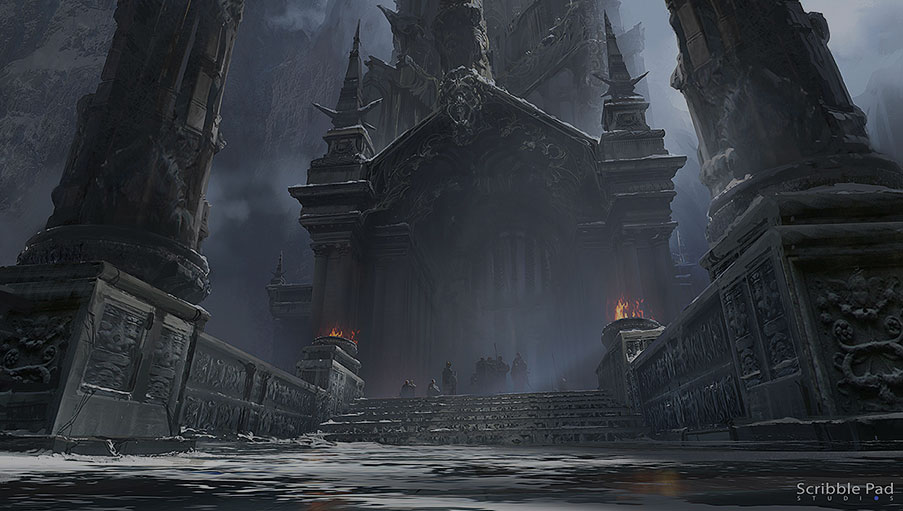
by Eliott Lilly | Jun 17, 2015 | Interviews
JAMES PAICK IS THE FOUNDER AND CREATIVE DIRECTOR AT SCRIBBLE PAD STUDIOS WITH OVER 15 YEARS OF DESIGN EXPERIENCE.
Scribble Pad Studios under the direction of James Paick has been responsible for creating some of the most memorable designs and moments in entertainment design. James has developed many projects within the gaming, film, theme park, illustration, entertainment space and advertising fields.
Websites:
www.ScribblePadStudios.com
www.JamesPaickArt.com
www.BrainstormSchool.com – This is a school specifically focused on design & job placement for students in the video game industry.
James Paick/ Scribble Pad Studios’ current portfolio examples
If you haven’t already, be sure to check out Part 1 of this interview, where we asked him specific questions about what it’s like to be a concept artist in the entertainment industry, dispel a few common misconceptions that aspiring artists tend to have about the field, and discuss his educational background. Here, in part two of this interview, we asked him specific questions about, building his portfolio, marketing himself in the industry and more. Here’s what James Paick had to say:
WHAT IS YOUR LIST OF DOS AND DON’TS TO BUILDING A STRONG PORTFOLIO?
A student portfolio will always lack the techniques that are needed in the industry. What a student portfolio should show, however is potential, ideas, & that you really love the world of Art & Design. I feel my portfolio even though very raw & lack of technique showed that I was very excited about this field. Excitement is one way to really get people to notice you.
I would say for students to constantly strive for better ideas, & better finished quality. A portfolio is purely to show where you are at a given moment, & should always change, improve, & update through time. What I would highly discourage is a for a student’s portfolio to stay sterile.
As a Creative Director @ Scribble Pad Studios, I have been in a hiring position for artists & designers.
Your portfolio is only as strong as your worst piece
Be careful not to put work into it that you’re either attached to, that YOU think is good, or that took you the longest. The biggest mistake that I see is creating a generic portfolio. Students need to be aware that clients hiring for film, games, TV commercials, matte painting, etc., are all looking for different things. One of the best things to know what these specific things are.
I would highly encourage students to ask peers, instructors, & artists to get an opinion on your portfolio.
James Paick Student work examples
HOW DID YOU HUNT DOWN YOUR FIRST JOBS IN THE INDUSTRY?
I tried to utilize all resources, from: school interviews, to emails, to student networks, & literally sending out physical copies of my portfolio to studios, not even knowing if I would receive my portfolio back from them. It’s really worth a shot, since the long term investment of landing one of these jobs would definitely be worth the time, energy, & money spent during this early phase in my career.
HOW DID YOU MARKET YOURSELF COMING OUT OF COLLEGE/ FIRST STARTING OUT?
The main task back then was to find where people gather to look at Concept Art. Luckily when I was coming out, there were only 2-3 main resources where artists went to get concept art inspiration. I was able to find those places, & I started to post my work & become part of the community. Once that happened, it just takes time for people to notice what you do. The major thing that was important was to keep consistent, & basically make it apart of your daily routine to stay active in the community.
WHERE DO YOU CURRENTLY MARKET YOURSELF? (WEBSITE, SOCIAL MEDIA, WORD OF MOUTH?, ETC.)
All the above! Every single one of those are absolutely important for different reasons. Social media is definitely one of the areas to involve on top of websites, art forums, blogs, etc.
Going to events & meeting people in person, and not being shy to simply say ‘hello’ were also very important items to do while seeking exposure.
DO YOU THINK THE INDUSTRY IS VEERING TOWARDS A MORE CONTRACT AND OUTSOURCING MODEL FOR ARTISTS?
Since the industry has expanded, there is going to be growth within outsourcing and freelance positions. However, studios will always want in-house artists to develop & envision the look of the project. The industry is growing year after year without any ended sight, so there will definitely be room for both types of work.
DO YOU HAVE ANY OTHER ADVICE FOR ARTISTS?
Always carry a sketchbook & pen. The world is your biggest source of inspiration. Try to ‘see’ & understand the world, instead of just ‘looking’ at it.
The Design Studio Library is a MUST HAVE for any concept artist. There are many “Art Of” books that allow you to see how these artists designed, as well as what struggles they went through while working on the particular project.
On a personal note, I try to do something Art related every day. Whether its watching a movie, sketching, doing a painting, or even going out for a walk to look at the landscape. As long as you have your art mind turned on, you will really develop your skills in any scenario.
All images used with permission by the artist. ©James Paick
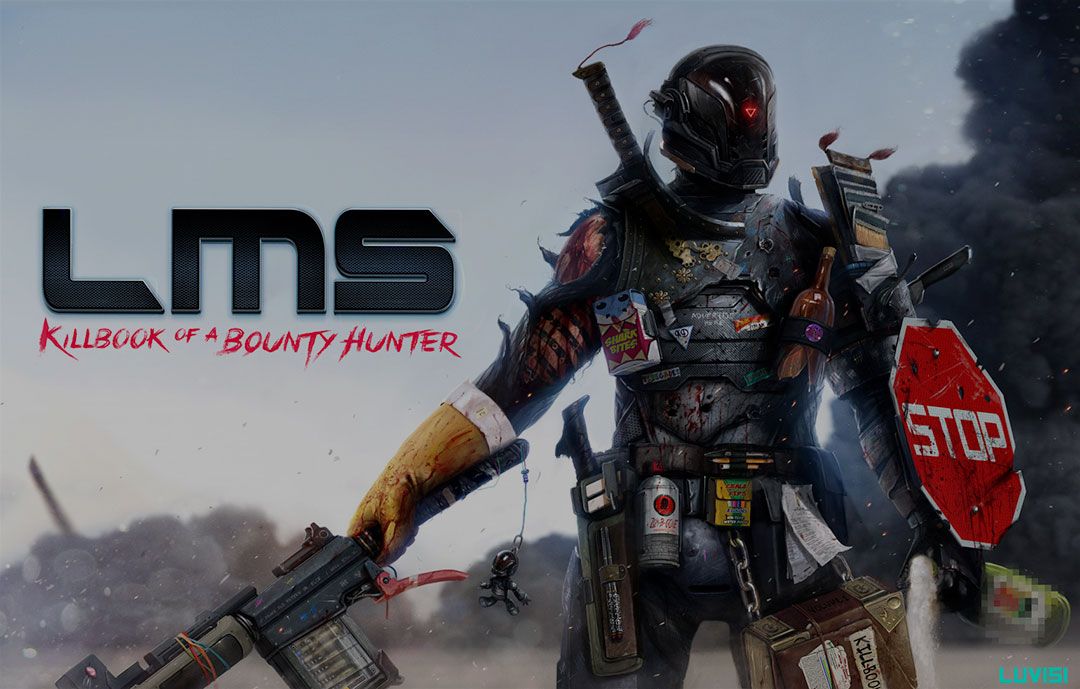
by Eliott Lilly | Jun 15, 2015 | Interviews
DAN LUVISI IS A DIGITAL CONCEPT ARTIST WORKING IN THE FILM, VIDEO GAME AND COMIC BOOK INDUSTRY.
With 12 years of industry experience, LuVisi has created a name for himself and is known for having an extremely versatile artistic style. Besides concept illustrations, LuVisi has become an expert in character and costume design, matte painting, storyboards, posters & packaging design and more.
Website: www.danluvisiart.com
Check out his book: Last Man Standing: Killbook of a Bounty hunter. It’s LEGENDARY!
Follow him on social media: Instagram: DanLuvisiArt – Facebook: DanLuVisiArt
Current portfolio examples
In this first part of the interview, we asked him specific questions about what its like to be a concept artist in the entertainment industry, dispel a few common misconceptions that aspiring artists tend to have about the field, and discuss his educational background. Here what he had to say:
HOW OLD WERE YOU WHEN YOU DECIDED TO COMMIT TO BEING AN ARTIST? WHAT WERE YOUR MOTIVATIONS AND INSPIRATIONS?
I was about four when I first began drawing. It was all amateur hour at the LuVisi household, as the extent of my talent was placing a sun in the corner of the paper. I was inspired originally by my father, but it’d be unfair to say that my mother didn’t contribute as well. While my father was more of a traditional artists, using paints and pencils–my mother had come from an interior design background. It explains my where I get my OCD of details and my love for drawing/painting.
WHAT DO YOU LIKE MOST ABOUT YOUR JOB? WHAT DO YOU FEEL ARE THE BIGGEST CHALLENGES?
My biggest challenge is trying to find a label for what exactly I do. I don’t believe it has been done yet, and that isn’t to toot my, or the ones I work alongside with, horn. What originally happened with my property LMS spun an idea to create a facility where we could distribute original and creator-owned IP. We’re getting there, and it’s been one of hell of a difficult journey, but if it all works out, I’ll enjoy every day of it forthcoming.
ARE THERE ANY MISCONCEPTIONS YOU THINK STUDENTS TEND TO HAVE ABOUT CONCEPT ART AND ILLUSTRATION, THE JOB AND/ OR THE CAREER THAT YOU WISH TO SET STRAIGHT?
I believe a lot of artists cling to what is popular. They see artists such as Maciej Kuciara or Aaron Beck, and instead of going through the trials and tribulations of becoming such an artist, they’d rather just BE that artist. In return, I’ve seen a lot of artist lose sight of what they originally intended to pursue. Be your own artist, and find inspiration through others. Channel that, and make it your own.
CAN YOU SHARE A PERSONAL STORY, ABOUT A HARD LESSON THAT YOU LEARNED (ON THE BUSINESS OR ARTISTIC SIDE OF THINGS), THAT COULD HAVE BEEN AVOIDED, HAD YOU BEEN BETTER INFORMED?
Yeah, don’t try to make a book. I kid, but it was one of the most challenging and informative lessons I’ve learned since. A lot of struggles along the way and even more screw-ups. Still trying to figure out the smoothest way to this day, that doesn’t cost me an arm and a leg to push it forward.
LuVisi’s student work examples
HOW VALUABLE WILL GETTING AN EDUCATION FROM A UNIVERSITY OR COLLEGE BE FOR ASPIRING ARTISTS WHO WANT TO BREAK INTO THE ENTERTAINMENT INDUSTRY? SHOULD THEY ATTEND A REGULAR SCHOOL WITH A LIBERAL ARTS PROGRAM? A 4 YEAR ART SCHOOL? OR JOB SPECIFIC TRADE SCHOOL?
I didn’t go to art school (college), but at the time there weren’t as many as there are now. Now you have Gnomon with tons of courses, Schoolism being taught online, Anthony Jones’ classes and now I’ve seen Patreon setting up art schools. When I was younger, I couldn’t attend school purely for the fact that I didn’t have the money to do it. So I’m cut in the middle. While half of me definitely encourages going to school and absorbing as much as you can (not to mention the connections you will meet). But, I also just pushed hard and worked my ass off to get here. But it’d be a lie to say I don’t think about going in the near future. Can always learn.
WERE YOU DISCIPLINED AND/OR FOCUSED IN SCHOOL? WHAT WAS YOUR ROUTINE? HOW MUCH TIME DID YOU SPEND ON YOUR HOMEWORK VS. SOCIALIZING?
I was terrible in school. I have a severe case of A.D.D. and a bit of Asperger’s syndrome, so the books and I didn’t really click. Didn’t have the best of teachers either, due to the fact that they hated I drew all day in class. But, I did soar in classes I appreciated. History, English and Art (if the teacher was cool). But honestly, I drew more than studied.
BESIDES THE FUNDAMENTAL ART CLASSES (PERSPECTIVE, ANATOMY, COLOR THEORY, ETC.), WHAT CLASSES DO YOU THINK STUDENTS SHOULD TAKE IN COLLEGE? ARE THERE ANY CLASSES YOU TOOK WHICH SURPRISINGLY HELPED YOU MORE THAN YOU THOUGHT THEY WOULD?
I went to a junior college for a bit and took a few art classes. But as a whole, I’d say it’s important for students to take all of the above. Personally, I’ve learned a lot of those lessons through books and artists I look up to.
DID YOU HAVE ANY OUTSIDE HELP PUSHING YOU ALONG WITH YOUR TRAINING? FROM A MENTOR, PASSIONATE TEACHER? FAMILY? FELLOW STUDENT?
Stephan, my now business partner, turned me into the monster I am today. Without him, I’d be in a studio, anxiety at an all-time high, not pursuing what I’ve always wanted to.
DID YOU STUDY OR TAKE ADDITIONAL CLASSES/ LESSONS, OUTSIDE OF SCHOOL? IF SO, HOW FREQUENTLY?
Didn’t take any, other than some writing classes for screenplays from a “writer” who had “written” before for Hollywood. Take that with a grain of salt.
This concludes part 1 of our interview. All images used with permission by the artist. ©Dan LuVisi. In part two, we discuss with LuVisi his Dos and DONTs of portfolio building, How he branded and marketed himself in the beginning, and much more.



